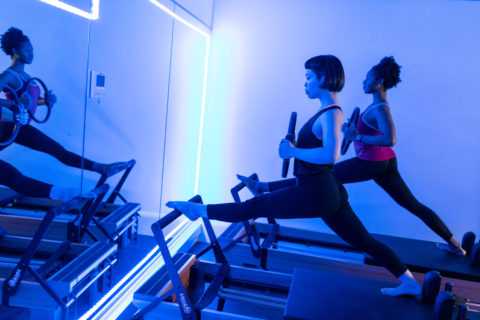Pilates is a popular form of exercise that focuses on developing core strength, flexibility, and overall body conditioning. It has been shown to have numerous benefits for individuals of all ages and fitness levels. However, like any form of exercise, there are certain situations where pilates may not be suitable. In this article, we will explore the potential contraindications of pilates and discuss when it may be necessary to modify or avoid certain exercises.
What are Contraindications?
Before we dive into the specific contraindications of pilates, let’s first define what we mean by the term. Contraindications are factors or conditions that make a particular treatment or intervention inadvisable or potentially harmful. In the context of pilates, a contraindication would refer to a situation where a person should avoid or modify certain exercises due to a health condition, injury, or other factor that could worsen with physical activity.
Common Contraindications to Pilates
While pilates is generally considered a safe and effective form of exercise, there are some situations where caution is warranted. Here are some of the most common contraindications to pilates:
Acute Injury or Pain: If you have a recent injury or are experiencing acute pain, it may be necessary to modify or avoid certain exercises that could exacerbate your symptoms. In these cases, it is important to consult with a medical professional or a qualified pilates instructor to determine the appropriate modifications.
Chronic Medical Conditions: Certain chronic medical conditions, such as heart disease, high blood pressure, or diabetes, may require modifications to certain pilates exercises or even complete avoidance of certain movements. It is important to consult with a medical professional before beginning any new exercise program.
Pregnancy: While pilates can be a safe and effective form of exercise during pregnancy, certain modifications may be necessary to accommodate the changing needs of your body. It is important to work with a qualified instructor who has experience working with pregnant women.
Joint Problems: Individuals with joint problems, such as arthritis, may need to modify certain exercises or avoid certain movements that could exacerbate their symptoms. It is important to work with a qualified instructor who can help you determine which exercises are safe and effective for your particular situation.
Spinal Problems: Individuals with spinal problems, such as herniated discs or spinal stenosis, may need to modify certain exercises or avoid certain movements that could exacerbate their symptoms. It is important to work with a qualified instructor who can help you determine which exercises are safe and effective for your particular situation.
Recent Surgery: If you have had recent surgery, it may be necessary to modify or avoid certain exercises until you have fully healed. It is important to consult with a medical professional or a qualified pilates instructor to determine the appropriate modifications.
Osteoporosis: Individuals with osteoporosis may need to modify certain exercises or avoid certain movements that could increase the risk of fractures. It is important to work with a qualified instructor who can help you determine which exercises are safe and effective for your particular situation.
While pilates can be a safe and effective form of exercise for many individuals, there are certain situations where caution is warranted. If you have a health condition, injury, or other factor that could be worsened with physical activity, it is important to consult with a medical professional or a qualified pilates instructor before beginning any new exercise program. With the right modifications and guidance, pilates can be a valuable tool for improving strength, flexibility, and overall health and wellness.






